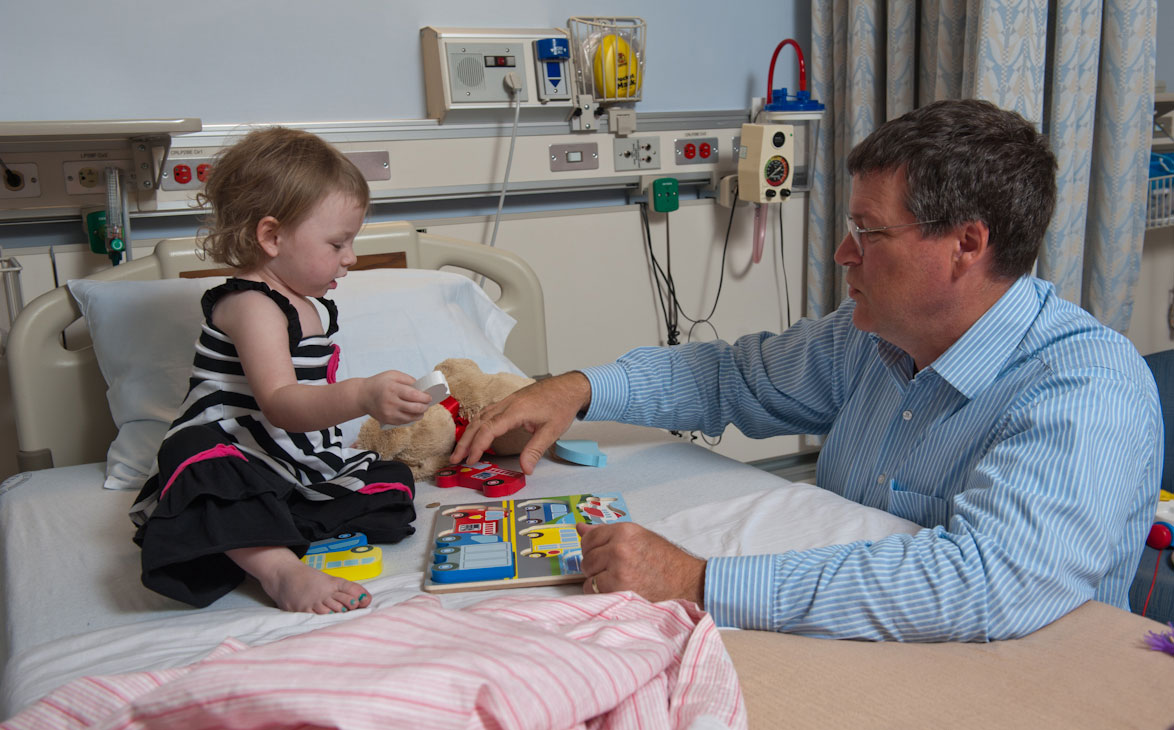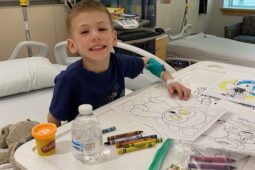10 Things You May Not Know About Rare Diseases!

- The Children’s Inn is “a place like home” for children with rare diseases. Children and their families come to The Inn from all over the world. These brave young pioneers participated in 265 clinical trials last year alone, leading to advances in treatment for cancer, bone and growth disorders, mental illnesses, and many other life-threatening conditions. Taking part in an NIH clinical trial is a lasting gift, offering hope for families who can’t find it anywhere else.
- You might not recognize a child with a rare disease. Some children with rare diseases do not look sick. Rare diseases can have effects inside the body – on organs like the heart, the kidney, and the liver – without showing any obvious signs or symptoms. Or, children with rare diseases can actually be healthy but at higher risk for infections and cancer, like these boys with the rare XMEN disease.
- An undiagnosed condition might be a rare disease. Doctors know a lot about common diseases but not nearly as much about the thousands of rare diseases known to exist. And that’s not even counting the many more conditions that don’t yet have a name. It can take parents several years to get an accurate diagnosis for their sick children, but participating in NIH research can help. In the last year, 90 pediatric patients in the NIH’s Undiagnosed Disease Program have received a diagnosis, giving hope to others who have the condition and those still searching for answers to their unique medical mystery.
- Parents of children with rare diseases are not alone. Young patients and their families staying at The Children’s Inn meet many people just like them. Being together in a supportive environment helps many parents cope with the challenges of having a child with a rare disease and provides lots of opportunities for having fun.
- Rare diseases are not that unusual. More than 6,500 rare diseases affect an estimated 25 million Americans, with more being discovered all the time. That means that about 1 in 10 people in the United States have a rare disease: Chances are you know one of them!
- Research on rare diseases helps many people that don’t have rare diseases. Researchers studying cystic fibrosis have learned a lot about lung health and basic heredity. In another example, research on rare blood disorders like hemophilia and various types of anemia have led to effective and safe methods for transfusions, which today are relatively common health procedures in children and adults.
- Rare diseases can be unusual versions of very common health problems. Millions of children are allergic to certain plants or foods and develop skin rashes called hives. But only a very few (one in a million or so) are allergic to sensations like cold, heat, or vibrations. While much less is known about such sensation-induced hives, in some cases they can be treated effectively with antihistamines, like other allergies.
- Children with rare diseases don’t have to be defined by their condition. In the famous video “My Philosophy for a Happy Life,” the late Sam Berns, who was born with the early-aging disease progeria, routinely spoke about achieving his goal of playing snare drums in his high-school marching band. By raising worldwide awareness of this condition, one of the rarest diseases in the world, Sam and his parents promoted research that is testing drugs for progeria and provided hope to millions of children living with any rare disease.
- Thanks to research and research volunteers, many rare diseases now have effective treatments. Sickle cell disease is a good example. At the turn of the 20th century, children born with sickle cell disease typically lived only a few years, whereas now people with this condition live well into adulthood and have happy, productive lives like Tiffany. The main reason for this good news is medical research proving the effectiveness of inexpensive medicines like penicillin and hydroxyurea.
- Some well-known conditions are actually rare diseases. These include conditions like Ebola infection, some types of cancer – and in the news lately, Zika virus infection. It is also true that once-common diseases like mumps and the measles are now rare due to the development of effective vaccines to stop them.




